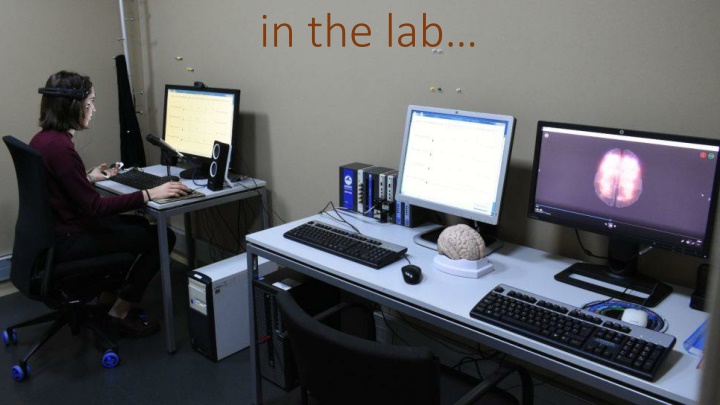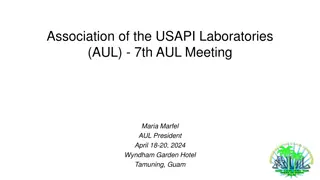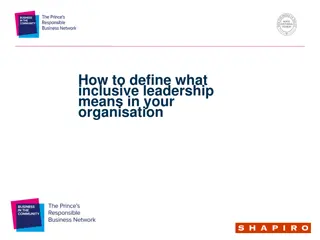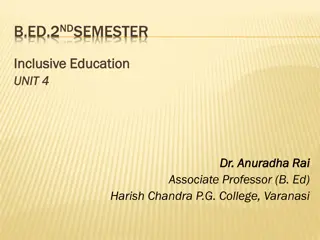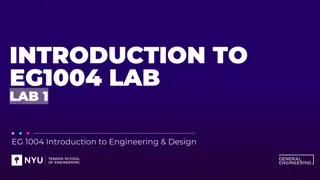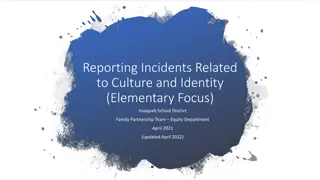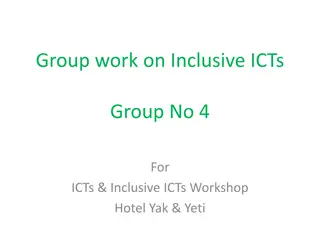Cultivating Inclusive and Empowering Lab Environment
Cultivating an inclusive and empowering lab environment involves proactively recruiting students from diverse backgrounds, valuing atypical experiences, providing explicit training, and fostering a safe space for everyone to speak up. Embracing equity and diversity as core principles, encouraging authenticity, and allowing for personal growth and relaxation activities are essential for creating a supportive and productive research environment.
Download Presentation

Please find below an Image/Link to download the presentation.
The content on the website is provided AS IS for your information and personal use only. It may not be sold, licensed, or shared on other websites without obtaining consent from the author.If you encounter any issues during the download, it is possible that the publisher has removed the file from their server.
You are allowed to download the files provided on this website for personal or commercial use, subject to the condition that they are used lawfully. All files are the property of their respective owners.
The content on the website is provided AS IS for your information and personal use only. It may not be sold, licensed, or shared on other websites without obtaining consent from the author.
E N D
Presentation Transcript
Crowd-sourced wisdom Pay students for their work (no volunteers!) Proactively, thoughtfully recruit students from diverse backgrounds Don t look only at the usual markers (GPA, GRE, etc) Look at potential and build up their talents, help students overcome challenges Acknowledge and value atypical experience Incorporate explicit training for students who do not yet have necessary skills Clear, detailed, and dynamic lab wiki specifying all info that might otherwise be implicit (eg. what to expect on first day, work expectations/vacation time, how authorship works) Be flexible and understanding of students different life demands (e.g. caregiving) Be proactive about recruiting URM who may not be familiar with the idea of working in a lab, show them what is cool about Cognitive Science Allow students to pursue independent projects of interest to them, not just things currently interesting to the field Poll time! Poll time!
Crowdsourced wisdom Pay students for their work (no volunteers!) Proactively, thoughtfully recruit students from diverse backgrounds Make sure everyone s voice is heard Actively give people the tools they need to feel comfortable speaking up Foster and maintain an environment in which is is safe to speak up Tools to speak up Give everyone explicit opportunities to share ideas and concerns Acknowledge and accept differences in style/temperament/culture Poll time! Safe environment Model treating people with respect, ensure everyone listens to ideas respectfully Prepare/encourage people to speak up to ensure the above (bystander training)
Crowdsourced wisdom Pay students for their work (no volunteers!) Proactively, thoughtfully recruit students from diverse backgrounds Make sure everyone s voice is heard Encourage people to be their authentic whole self Be your own authentic self Be open about your struggles and flaws, share personal experiences Hold lab meetings not focused on work updates, e.g. check-ins, failures/successes, relevant events or papers to recommend, productivity tips, lab anti-racism brainstorming Allow time and place for relaxing group activity, such as social occasions in which culinary skills are exchanged (be mindful of potentially problematic situations) Poll time!
Crowdsourced wisdom Pay students for their work (no volunteers!) Proactively, thoughtfully recruit students from diverse backgrounds Make sure everyone s voice is heard Encourage people to be their authentic whole self Make embracing equity and diversity an explicit core value of your lab Be open about support of URMM, e.g. share info on the topic on social media Set aside one meeting/term to talk about inclusion issues, let students lead these discussions Offer training and model speaking up to problematic behavior, bring people in by assuming they want to do the right thing, We all want equality Include considerations of social justice in different aspects of lab practice -- participant recruitment, participant incentives, etc. Poll time! For nearly every decisions we make in the lab now, one of the considerations is: how does this help promote social justice and if it does not help how do we change this?
Thoughts? Pay students for their work (no volunteers!) Proactively, thoughtfully recruit students from diverse backgrounds Make sure everyone s voice is heard Encourage people to be their authentic whole self Make embracing equity and diversity an explicit core value of your lab
